Attention deficit hyperactivity disorder (ADHD) is a common neurodevelopmental disorder that affects millions of children and adults around the world. It is defined by a continual pattern of inattentiveness, hyperactivity, and impulsiveness that disrupts everyday functioning and growth.
In the content of this blog post, we’ll delve into the following subjects:
- What are the symptoms of ADHD?
- What are the causes of ADHD?
- How is ADHD diagnosed?
- How is ADHD treated?
- How can you prevent ADHD?
- What are some resources for ADHD?

What are the symptoms of ADHD?
ADHD symptoms vary from person to person, but they can be grouped into three main categories: inattention, hyperactivity, and impulsivity.
- Inattention: People with ADHD may have difficulty paying attention to details, following instructions, organizing tasks, staying focused, or listening to others. They may also be easily distracted by irrelevant stimuli, forgetful, or prone to making careless mistakes.
- Hyperactivity: People with ADHD may have excess energy, fidget, squirm, or talk excessively. They may also have trouble sitting still, staying in one place, or waiting for their turn. They may act as if they are driven by a motor, or restless.
- Impulsivity: People with ADHD may act without thinking, interrupt others, blurt out answers, or have difficulty controlling their emotions. They may also have trouble waiting, taking turns, or respecting boundaries. They may act on a whim, or engage in risky behaviors.
ADHD symptoms can vary in severity, frequency, and context. They can also change over time, depending on the person’s age, environment, and life circumstances. ADHD symptoms can cause problems in various aspects of life, such as school, work, relationships, or self-esteem.
What are the causes of ADHD?
The exact causes of ADHD are not fully understood, but researchers believe that it is a complex condition that involves multiple factors, such as genetics, brain structure, brain chemistry, environmental influences, and developmental issues.
- Genetics: ADHD tends to run in families, and studies have identified several genes that may be associated with the disorder. However, having these genes does not necessarily mean that a person will develop ADHD, as other factors may also play a role.
- Brain structure: Brain imaging studies have shown that people with ADHD may have differences in the size, shape, or function of certain brain regions, especially those involved in attention, executive functions, emotion regulation, and reward processing. These differences may affect how the brain communicates and processes information.
- Brain chemistry: Brain chemicals, or neurotransmitters, are responsible for transmitting signals between nerve cells. People with ADHD may have imbalances or dysfunctions in the levels or activity of certain neurotransmitters, such as dopamine, norepinephrine, or serotonin. These imbalances may affect how the brain regulates attention, arousal, motivation, and mood.
- Environmental influences: Certain environmental factors may increase the risk of developing ADHD, or worsen the symptoms. These factors may include prenatal exposure to alcohol, tobacco, drugs, or toxins, low birth weight, prematurity, brain injury, infections, malnutrition, or stress. However, these factors alone do not cause ADHD, as they may interact with other factors, such as genetics or brain development.
- Developmental issues: ADHD is a developmental disorder that begins in childhood, and may persist into adulthood. Some researchers suggest that ADHD may be caused by a delay or disruption in the maturation of certain brain regions or functions, such as attention, self-control, or planning. These delays or disruptions may affect how the brain adapts to changing demands and expectations.
How is ADHD diagnosed?
ADHD cannot be diagnosed through a single test. Instead, the diagnosis is based on a comprehensive evaluation that involves multiple sources of information, such as medical history, physical examination, psychological testing, behavioral observations, interviews, questionnaires, and rating scales.
The diagnosis of Attention deficit hyperactivity disorder follows the criteria established by the Diagnostic and Statistical Manual of Mental Disorders (DSM-5), which is the official guide for mental health professionals. According to the DSM-5, a person must meet the following conditions to be diagnosed with ADHD:
- The person must have at least six symptoms of inattention and/or six symptoms of hyperactivity/impulsivity for children up to age 16 or at least five symptoms for adolescents 17 and older and adults. The symptoms must be present for at least six months, and be inappropriate for the person’s developmental level.
- The symptoms must cause significant impairment in two or more settings, such as home, school, work, or social situations.
- The symptoms must not be better explained by another mental disorder, such as autism spectrum disorder, anxiety disorder, depressive disorder, or bipolar disorder.
- The symptoms must have started before the age of 12, although they may not have been diagnosed until later.
The diagnosis of ADHD may also specify the subtype of the disorder, based on the predominant pattern of symptoms:
- Predominantly inattentive presentation: The person has more symptoms of inattention than hyperactivity/impulsivity.
- Predominantly hyperactive/impulsive presentation: The person has more symptoms of hyperactivity/impulsivity than inattention.
- Combined presentation: The person has both symptoms of inattention and hyperactivity/impulsivity.
The diagnosis of ADHD may also indicate the severity of the disorder, based on the degree of impairment caused by the symptoms:
- Mild: The symptoms cause minor impairment in social, academic, or occupational functioning.
- Moderate: The symptoms cause moderate impairment in social, academic, or occupational functioning.
- Severe: The symptoms cause severe impairment in social, academic, or occupational functioning.
How is ADHD treated?
There is no cure for Attention deficit hyperactivity disorder, but there are various treatments that can help manage the symptoms and improve the quality of life of people with the disorder. The most common treatments for ADHD are medication, psychotherapy, behavioral interventions, and education.
- Medication: Medication can help reduce the symptoms of inattention, hyperactivity, and impulsivity, and improve the person’s ability to focus, learn, and control their impulses. The most common types of medication for ADHD are stimulants, such as methylphenidate or amphetamine, which increase the activity of certain neurotransmitters in the brain. Other types of medication for ADHD include non-stimulants, such as atomoxetine or guanfacine, which affect different neurotransmitters or brain receptors. Medication for ADHD must be prescribed by a doctor, who will monitor the dosage, effectiveness, and side effects of the medication. Medication for ADHD is not a magic bullet, and it may not work for everyone. It may also have some risks or drawbacks, such as addiction, tolerance, withdrawal, or adverse reactions. Therefore, medication for ADHD must be used in conjunction with other treatments, such as psychotherapy or behavioral interventions.
- Psychotherapy: Psychotherapy can help people with ADHD cope with their emotions, thoughts, and behaviors, and improve their self-esteem, social skills, and relationships. Psychotherapy can also help people with ADHD address any co-occurring mental disorders, such as anxiety, depression, or substance abuse. Psychotherapy can be delivered individually, in groups, or with family members. The most common types of psychotherapy for ADHD are cognitive-behavioral therapy (CBT), which helps people identify and change their negative or irrational thoughts and behaviors, and interpersonal therapy (IPT), which helps people improve their communication and problem-solving skills. Other types of psychotherapy for ADHD include mindfulness-based therapy, which helps people increase their awareness and acceptance of their present-moment experience, and acceptance and commitment therapy (ACT), which helps people clarify their values and commit to actions that align with them.
- Behavioral interventions: Behavioral interventions can help people with ADHD modify their behavior and environment, and reinforce their positive outcomes. Behavioral interventions can be applied at home, school, work, or other settings, and involve the collaboration of parents, teachers, coaches, or other caregivers. The most common types of behavioral interventions for ADHD are behavior modification, which uses rewards and consequences to shape the desired behavior, and behavior therapy, which teaches the person specific skills and strategies to manage their behavior. Other types of behavioral interventions for ADHD include contingency management, which uses incentives and contracts to motivate the person to achieve their goals, and self-management, which helps the person monitor and regulate their own behavior.
- Education: Education can help people with ADHD understand their condition, learn about their strengths and weaknesses, and access the resources and support they need. Education can also help people with ADHD advocate for their rights and needs, and reduce the stigma and discrimination they may face. Education can be provided by various sources, such as health professionals, teachers, counselors, or peer groups. Education can also involve the use of books, websites, podcasts, or other media that offer reliable and relevant information about ADHD.

How can you prevent ADHD?
There is no definitive way to prevent ADHD, as the causes of the disorder are not fully known or controllable. However, there are some steps that may reduce the risk of developing ADHD, or minimize the impact of the disorder. These steps include:
- Avoiding or limiting exposure to alcohol, tobacco, drugs, or toxins during pregnancy and early childhood, as these substances may affect the brain development of the fetus or the child.
- Providing a healthy and balanced diet, rich in omega-3 fatty acids, iron, zinc, and magnesium, as these nutrients may support the brain function and development of the child.
- Ensuring adequate sleep, exercise, and relaxation, as these activities may improve the physical and mental health of the child.
- Seeking early intervention and treatment, as soon as the symptoms of Attention deficit hyperactivity disorder are noticed or suspected, as this may improve the prognosis and outcome of the disorder.
- Providing a supportive and structured environment, that offers clear rules, routines, and expectations, and minimizes distractions, interruptions, and stressors, as this may help the person with ADHD cope with their challenges and enhance their performance.
- Seeking professional help and support, from qualified and experienced healthcare providers, therapists, coaches, or mentors, as this may help the person with ADHD access the best treatments and resources for their needs and goals.
- Joining a support group or community, that offers peer support, education, advocacy, or social activities, as this may help the person with ADHD connect with others who share their experiences and challenges, and learn from their successes and strategies.
What are some resources for ADHD?
If you or someone you know has ADHD or suspects that they may have it, you may find the following resources helpful:
- ADHD Awareness Month: A website that offers information, events, and activities to raise awareness and understanding of ADHD during the month of October.
- Children and Adults with Attention-Deficit/Hyperactivity Disorder (CHADD): A non-profit organization that provides education, advocacy, and support for people with ADHD and their families.
- Attention Deficit Disorder Association (ADDA): A non-profit organization that provides information, resources, and networking opportunities for adults with ADHD.
- ADDitude: A magazine and website that offers news, tips, strategies, and personal stories for people with ADHD and related conditions.
- National Resource Center on ADHD: A program of CHADD that provides information and assistance on ADHD to the public, funded by the Centers for Disease Control and Prevention (CDC).
- International ADHD Coach Federation (IAAC): A professional association that promotes and supports the field of ADHD coaching, and provides a directory of certified ADHD coaches.
Important Notice:
The information provided on “health life ai” is intended for informational purposes only. While we have made efforts to ensure the accuracy and authenticity of the information presented, we cannot guarantee its absolute correctness or completeness. Before applying any of the strategies or tips, please consult a professional medical adviser.


